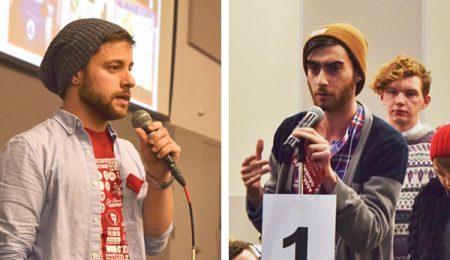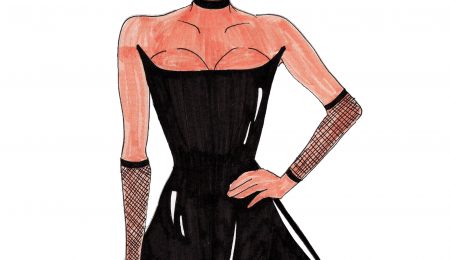Kristyn Filip | Fulcrum Staff
Illustration by Mathias MacPhee
SEVEN OF THEM. Seven of my friends from high school have gotten married in the past two years. A handful have become parents. Many pay into mortgages, are employed by companies that offer benefits—they can go to the dentist, can you imagine—and others still are living in fabulous apartments and take expensive trips to so-obscure-they’re-trendy European countries. They own dogs and fancy cooking ware and buy furniture they don’t have to assemble themselves from stores that aren’t Swedish. The vast majority of these people I haven’t spoken to since June 2007 when we exchanged tearful goodbyes at our high school graduation ceremony and promised to stay in touch while at university. Six years separate us, but thanks to widespread social media usage, I know what delicious food they ate last night, the twee names they’ve chosen for their offspring, and where they stayed on their last trip to New York City. I know these things, and I’m jealous.
Judging by their Facebook updates, my old friends—most of whom are recent grads, like myself, while some are still students—seem to be living pretty fantastic lives. Take, for example, my friend who just posted 200 pictures of her most recent trip to the Dominican Republic. She swam with dolphins! She went parasailing! She drank fancy pink margaritas on the beach! Looking around my Sandy Hill apartment, everything I once considered to be “pretty okay” has now become completely unacceptable. My plates don’t match, my mattress sits on a box spring on the floor, my desk was a treasure I found on the side of the road and dragged home. I don’t have any immediate vacation plans; no legitimate career, fiancé, or real estate prospects; and a measly $375 in my savings account. Come to think of it, when I compare my life to those of my Facebook friends, my situation seems pretty not okay.
Not to be outdone by the dolphin-whisperer, I hastily change my Facebook profile picture to a photo of my sister and I, standing knee-deep in the Pacific Ocean, the rugged beauty of the southern California coast on display behind us. I instantly feel better about my life—look, Facebook friends, I’ve gone on some pretty amazing trips myself, thank you very much—but the feeling is fleeting and I’m left with some fairly intense social media remorse. The picture is from two years ago, and honestly, who cares if I went to California? What am I trying to accomplish here?
Taking a deep breath, I slowly remove my hands from my laptop’s keyboard. After a few moments of self-reflection, I’ve come to a pretty important realization: what I present to my friends on the Internet is a highly edited, carefully constructed, made-for-social-media version of my life. The same can be said for most of the people I interact with online. It’s natural to share good news with friends, and it’s even more natural to want others to think you’ve got your shit together. Of course I feel like my own life pales in comparison to the lives the Internet says my old friends are living—I don’t have information about any of the less-than-desirable experiences they’re all undoubtedly going through.
The $375 in my savings account aside, I’m really not doing all that badly. I’m healthy, and I’m educated. I have a great group of supportive friends and I love my family. I’m gainfully employed, and I pay my own bills. No husband, kids, or mortgage, sure, but who needs that sort of commitment at the age of 23 anyway? While I’ll always be a little envious of the fantastic trips my friends take, I’ve done my fair share of travelling and I know I’ll do more in the future.
As I manipulate my curser toward the “Deactivate your account” link on Facebook, I feel a certain sense of dread—erasing yourself from social media is tantamount to erasing yourself from the civilized world, after all—but it’s a necessary step. It’s high time I stop “liking” everyone else’s life and start living my own.
editor@thefulcrum.ca





